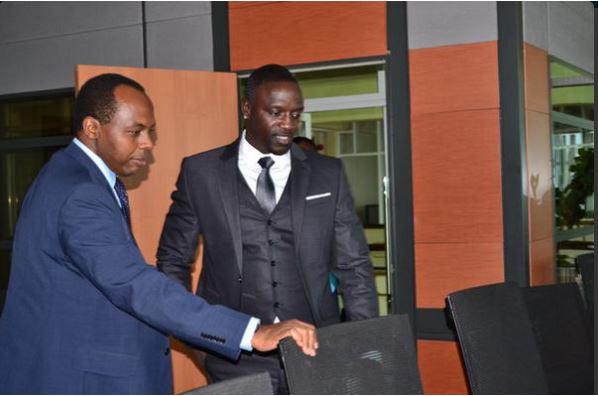The World Bank’s Board of Directors has approved a record investment of $700 million in guarantees for Ghana’s Sankofa Gas Project a statement from the Bank said.
The Sankofa project is a transformational project that will help address the country’s serious energy shortages by developing new sources of clean and affordable natural gas for domestic power generation.
The Board approved a unique combination of two guarantees for the Project – an IDA Payment guarantee of $500 million that supports timely payments for gas purchases by Ghana National Petroleum Corporation and an IBRD Enclave Loan guarantee of $200 million that enables the project to secure financing from its private sponsors.
Together, the guarantees are expected to mobilize $7.9 billion in new private investment for offshore natural gas, representing the biggest foreign direct investment in Ghana’s history.
Ghana, with a population of 25 million people, has suffered macroeconomic shocks in recent years – partly due to challenges being faced by the country’s power sector.
A combination of water shortages for hydropower, erratic gas supplies from external sources, and delays in the development of domestic gas resources and new power plants have led to frequent power outages that have affected the poor the most.
The Government of Ghana has spent more than $500 million on fuel subsidies to the power sector in recent years – significantly draining public resources, the statement said.
Developing the Sankofa Gas Project – located 60 km offshore – is expected to bring significant benefits for Ghana by fueling up to 1,000 megawatts of clean power generation, replacing polluting and expensive oil-burning electricity.
Once the Sankofa field starts to produce gas in early 2018, Ghana will be able to reduce its oil imports by up to 12 million barrels a year and cut carbon emissions by 1.6 million metric tons of CO2 annually.
“The Sankofa Gas Project is a good example of how Africa can address its infrastructure challenges and lay the foundation for sustained economic growth by providing affordable and reliable power to its population,” said Makhtar Diop, Vice President for the World Bank’s Africa Region.
“Innovative use of the Bank’s Guarantee Programme that helps mitigate the perception of risk and mobilizes private investment can help unlock billions of much-needed financing for large-scale infrastructure projects on the continent.”
Ghana’s Finance Minister, Hon Seth Terkper, said the project is a game changer for Ghana and other middle income Sub-Saharan African countries, as it would help shape the country’s energy sector for the next 20 years.
“This project is an essential element of the drive towards consolidating our middle income status, and will help secure our natural gas resources for a more affordable and reliable power supply. This will help boost economic activity and generate more jobs for Ghanaians. It is part of the smart financing we have been talking about, and we are very grateful to the World Bank Group for this major achievement.”
The exploration and commercialization of the gas will be carried out by two private investors, Eni of Italy and Vitol Group of the Netherlands, in close partnership with Ghana’s National Petroleum Corporation, (GNPC).
The Sankofa project is part of a much broader programme of support by the World Bank Group for Ghana’s energy sector transformation. This has included technical assistance for the energy sector reforms and the drafting of a new renewable energy law, provision of off-grid energy services for remote communities, and support to the distribution utility to improve its operations.
The approval of the World Bank Guarantees is a key step — it will help pave the way for finalization and signing of the legal contracts that underpin this landmark private operation.
The World Bank’s International Development Association (IDA), established in 1960, helps the world’s poorest countries by providing grants and low to zero-interest loans for projects and programmes that boost economic growth, reduce poverty, and improve poor people’s lives.
The IDA is one of the largest sources of assistance for the world’s 77 poorest countries, 39 of which are in Africa. Resources from IDA bring positive change for 2.8 billion people, the majority of whom live on less than $2 a day. Since 1960, IDA has supported development work in 112 countries. Annual commitments have averaged about $18 billion over the last three years, with about 50 per cent going to Africa.
The International Bank for Reconstruction and Development IBRD) was created in 1944 to help Europe rebuild after World War II. Today, IBRD provides loans and other assistance primarily to middle income countries. IBRD is providing innovative financial solutions, including financial products (loans, guarantees, and risk management products) and knowledge and advisory services (including on a reimbursable basis) to governments at both the national and sub-national levels.


